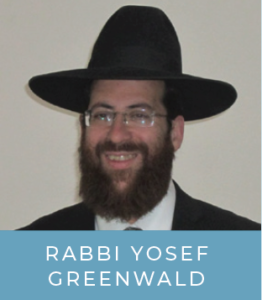Q&A From the Bais HaVaad Halacha Hotline
Stop-Loss Order
Dayan Yosef Greenwald
January 6, 2022
Q I was unsure whether I had already bentched, so I bentched to be certain. Midway through, I recalled that I had in fact done it earlier. What should I have done at that point?
 A A general principle in halacha is that safek de’Oreisa lechumra (where there is uncertainty in a de’Oreisa matter, we act strictly) and safek deRabanan lekula (where there is uncertainty in a deRabanan matter, we act leniently). One ramification of this rule is that a man who ate bread but is unsure whether he recited birkas hamazon should recite it, because his obligation of birkas hamazon is mide’Oreisa. But a similarly-situated woman does not, because her obligation is only mideRabanan. The same is true of a man who ate less bread than kedei sviah (enough to be satiated), whose obligation is also only mideRabanan.
A A general principle in halacha is that safek de’Oreisa lechumra (where there is uncertainty in a de’Oreisa matter, we act strictly) and safek deRabanan lekula (where there is uncertainty in a deRabanan matter, we act leniently). One ramification of this rule is that a man who ate bread but is unsure whether he recited birkas hamazon should recite it, because his obligation of birkas hamazon is mide’Oreisa. But a similarly-situated woman does not, because her obligation is only mideRabanan. The same is true of a man who ate less bread than kedei sviah (enough to be satiated), whose obligation is also only mideRabanan.
If you began to recite birkas hamazon in a case of safek de’Oreisa but then remembered that you had already recited it, you must stop immediately, because it is a bracha levatalah.
With respect to hilchos tefilah, one who is unsure whether or not he davened davens again, but for a different reason: A person may daven all day long (Shulchan Aruch, O.C. 107:1 and Mishnah Brurah 2) as a tefilas nedavah (voluntary tefilah). Even one who began the shmoneh esrei due to uncertainty and remembered in the middle that he had davened previously may finish, because the second tefilah can just be a tefilas nedavah (Mishnah Brurah 7). In birkas hamazon, however, there is no such thing as nedavah.